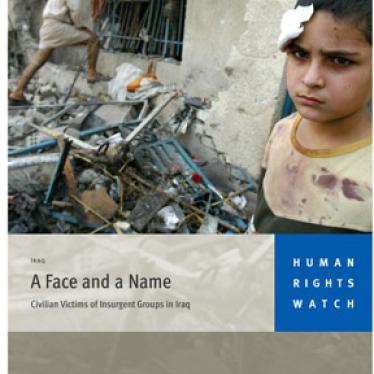(New York) - In mid-August 2009, a sixth round of heavy fighting erupted in the north of Yemen between government forces and Huthi rebels. The conflict first broke out in 2004, and the previous round of fighting ended with a cease-fire in mid-July 2008.
Human Rights Watch is extremely concerned about the consequences of the current fighting on the humanitarian situation in that region, based on reports coming from the United Nations and other humanitarian agencies in Yemen, as well as media reports. As happened during the fifth round of fighting (May-July 2008), Yemeni authorities, citing security concerns, have hampered the access of humanitarian groups to the conflict areas, with consequences for the provision of medicines, food, and other humanitarian supplies as well as for reliable information about the impact of the fighting on the civilian population. Current reports indicate that upward of 100,000 civilians have been displaced by the new fighting, and the World Health Organization reports that in Sa`da governorate, the epicenter of the fighting, health facilities are "non-functional."
The extent of deaths and injuries among civilians is not known. International humanitarian law - the laws of war - requires warring parties at all times to distinguish between combatants and civilians, and to direct attacks only against combatants or legitimate military objectives. The laws of war prohibit attacks that target or indiscriminately harm civilians. Civilian objects, such as homes, schools, and places of worship, are also protected from attack unless they are being used for military purposes. Warring parties must also allow for humanitarian access and ensure that any restrictions are imposed only temporarily and when required by "imperative military necessity."
When Human Rights Watch visited Yemen in July 2008, researchers gathered information on the fifth round of fighting, including allegations of aerial bombing and artillery shelling attacks on populated villages by government forces as well as other serious laws of war violations by both sides, including use of children under 18 in combat, use of anti-personnel landmines in civilian areas, and taking civilians and combatants hostage. Because of the government information blackout and refusal to grant access at the time, Human Rights Watch was unable to verify these accounts.
The government of Yemen and the Huthi leadership have both pledged to respect the laws of war. Human Rights Watch calls on leaders of both sides, in accordance with their obligations under international law, to ensure that forces under their command fully comply with these public pledges. Human Rights Watch also called on both sides to facilitate access to the conflict area by humanitarian agencies, journalists, and human rights monitors.






